QuestionHi Alan!
My name is Caroline and I'm 18. My family brought home a new puppy last
night for my mom's birthday. She is an 11 week-old miniature schnauzer
named Uli. Uli has a perfect disposition. She is happy and content with
whatever she is doing. She loves playing [with anyone, anything, or by
herself], eating, or cuddling. We got her from a very good and experienced
breeder. We already have a 4 year-old mini-schnauzer/poodle mix named
Greta. Greta is about 16lbs. We've had Greta since she was 6.5weeks old. We
did not socialize Greta well as a puppy. She is good with kids and will play
with similarly-sized dogs in the neighborhood. She is initially scared of
strangers in the house and will bark at them, but afterwards she will be
playful with them.
We've had some problems with Greta introducing Uli to her. Last night, Greta
refused to acknowledge or look at Uli if Uli was looking at her. If Uli
approaches Greta to snuggle or play with her, Greta will run away- she'll sit
by our feet or crawl up onto us. Last night, I slept with Uli in the basement,
while Greta slept on her usual couch in the family room. This morning, we
took the two of them out to our backyard and Greta began to acknowledge
Uli. She sniffed Uli then they chased each other around and played for awhile.
Greta would occasionally use a non-threatening growl. Inside, Greta resumed
her behavior of avoiding Uli, but she will watch Uli play. They've played
multiple times outside together now. Uli seems confused at times [or does
not know how to react] when Greta does not want to play with her, after Uli
has played with many of the dogs and puppies at the breeder's.
Is there anything we can do to improve Greta's reaction/behavior? We do not
want to wait to see if Greta warms up on her own, we want to try to address
this before it lasts too long. What do you recommend we do or should we hire
a professional behaviorist- we rather would not take back Uli.
Thanks
Caroline
AnswerP.S. IT wouldn't hurt to buy the book - Feeling Outnumbered? How to Manage and Enjoy Your Multi-Dog Household. (Paperback)
by Karen B. London, Patricia B. McConnell
Dear Caroline,
Thanks for the question. I was somewhat concerned as I read your note - until the part where you stated "Greta began to acknowledge Uli. She sniffed Uli then they chased each other around and played for a while." That's great!
When you think about it, Greta has probably not been around an 11 week-old pup since she was one. She forgot how goofy, uncoordinated, inquisitive, curious, energetic, and unpredictable these little guys can be. In addition, puppies are still learning about acceptable canine social behaviors, make many improper advances and are sometimes just plain tiresome, rude and obnoxious!
Hopefully Greta will teach Uli how to be and that is most likely what the growling is about. I'd give them another few days before calling in a professional. Don't be surprised if Greta corrects Uli with what might look like a quick attack that yields no injuries.
Puppies under 12 weeks old have what we call a "puppy license" in the dog world. That means that most normal older dogs tolerate the puppies' lack of experience in play and do not hurt them. The older dogs will correct them but not
usually do any physical harm.
Even after 12 weeks, older pups will safely correct younger pups.
To determine if dogs (of all ages) are playing nicely look for these signs-
1) they take turns at "being on top" one will be on top of the other and then they will switch up and trade places. In other words they take turns. One will be submissive and one the aggressor, then they switch roles. This is normal dog play.
2) Neither of them is always hiding or desperately trying to get away from the other. If one is constantly hiding behind you or getting his or her whole body real low to the ground whenever the other heads his way, he might be truly scared. On the other hand if he keeps going back for more, he is having doggie fun!
3) look for play "bows". if either dog has his or her rear end up and his or her front feet and head are down, that is an invitation for play. The dog that bows is saying, "Hey, let's play!".
The main thing to do is to not let one dog bully another one. If one of the players is truly trying to avoid the other, then you should step in and separate them. No scolding, just let them both rest.
Even if they don't play too rough, it's a good idea to separate them and inject a quick rest period during play.
Happy Training!
AT
P.S. IT wouldn't hurt to buy the book - Feeling Outnumbered? How to Manage and Enjoy Your Multi-Dog Household. (Paperback)
by Karen B. London, Patricia B. McConnell

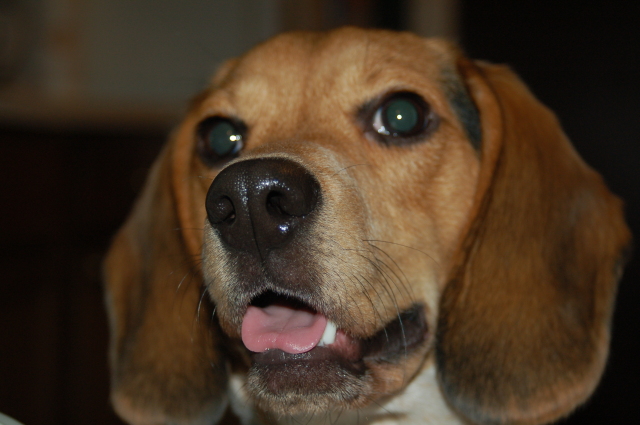 uncontrollable beagle
Question
max
My beagle is a year and a half. Ive had hi
uncontrollable beagle
Question
max
My beagle is a year and a half. Ive had hi
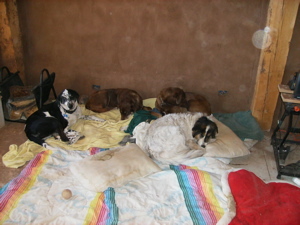 Sudden aggression within pack after a death
Question
Sudden aggression in o
We have an approximatel
Sudden aggression within pack after a death
Question
Sudden aggression in o
We have an approximatel
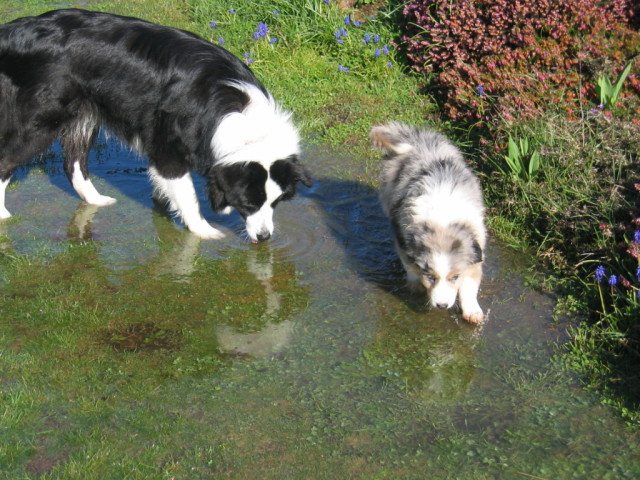 Dog in Heat?
QuestionLily and Jorge
QUESTION: Hello,
We have
Dog in Heat?
QuestionLily and Jorge
QUESTION: Hello,
We have
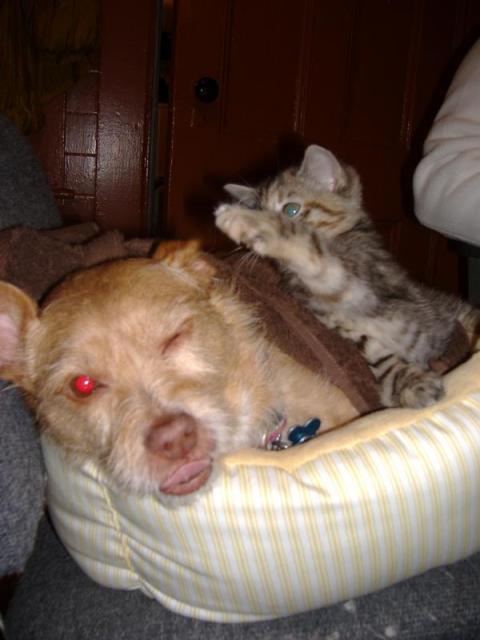 My dog is shaking and hiding under my bed recently
QuestionRorrie and Pencil
QUESTION: My dog, Rorr
My dog is shaking and hiding under my bed recently
QuestionRorrie and Pencil
QUESTION: My dog, Rorr
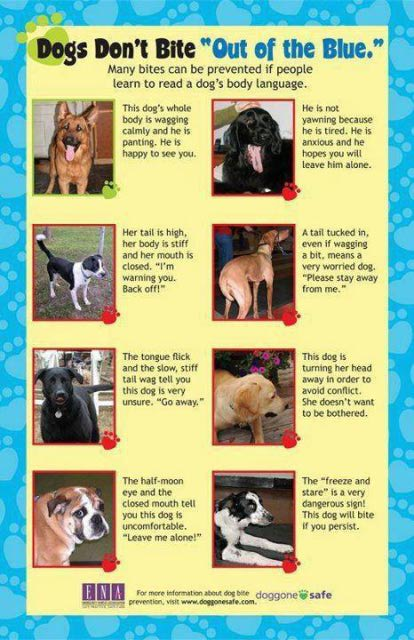 Is this aggression, dominance, or play?
QuestionQUESTION: I have a question regarding doggy beh
Is this aggression, dominance, or play?
QuestionQUESTION: I have a question regarding doggy beh